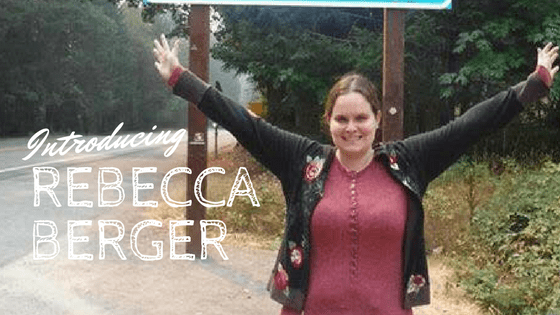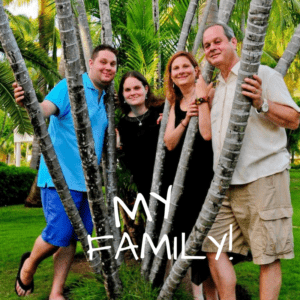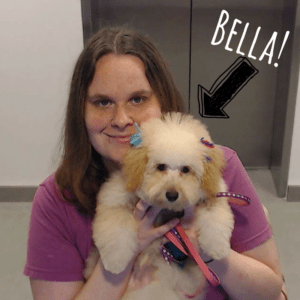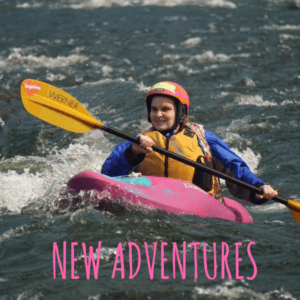Featured Survivor Story:
Melanoma Does Not Define Rebecca Berger

Rebecca Berger is a 27-year-old pediatric oncology nurse practitioner who has struggled with her own cancer. Diagnosed with melanoma in 2013, she lives in St. Petersburg, Florida, with a supportive network of family and friends.
When were you diagnosed and what is your diagnosis?
I was originally diagnosed in May 2013, one week before my 23rd birthday. I had a melanoma on my left jawline, which grew out of a congenital nevus, 1.4 mm. I had a sentinel node biopsy attempted with my wide excision, but no lymph node was found, so I remain unstaged and have close follow up. In the last 18 months, I had a melanoma in situ on my left arm and three additional severely dysplastic nevi requiring wide excisions, including one on my scalp. Also, about a year after my original diagnosis, I found out I have a very rare inherited cardiac condition, CPVT, so now I follow up with that as well.
How did you feel when you were first diagnosed?
I was nervous before getting the biopsy results; however, I was not surprised that it was melanoma. I had a lesion removed in that same location years earlier, and that biopsy came back negative. The lesion grew back, and I felt strongly that the new lesion needed to be removed and biopsied. Unfortunately, I had to push to get it removed; several dermatologists didn’t think it was necessary. I’m glad I pushed.
Who/what/where did you turn to?
 My family. My mom is an oncologist, and my brother is in medical school, so I come from a very medical family. I was not able to be treated where my mom works, as it is a research-only institution, but she was able to help find the best doctors in my area. I also turned to my friends. They did not necessarily come with me to appointments, but they were there for me when I needed them.
My family. My mom is an oncologist, and my brother is in medical school, so I come from a very medical family. I was not able to be treated where my mom works, as it is a research-only institution, but she was able to help find the best doctors in my area. I also turned to my friends. They did not necessarily come with me to appointments, but they were there for me when I needed them.
What (if any) additional means of support could you have used/turned to that you do not feel you had at the time?
About a year after I was diagnosed I moved to Philadelphia for graduate school and became involved in the AYA (Adolescents and Young Adults with Cancer) community. I continue to be involved with that community now, both locally, through Stupid Cancer, and with First Descents, an organization that brings young adult cancer survivors on trips. I went white water kayaking in Oregon last summer. These organizations and support would have been so helpful when I was diagnosed. I did not undergo chemotherapy or another debilitating treatment, so life went back to normal pretty quickly.
How did you choose to share your diagnosis with your family?
I called my parents right after talking to the dermatologist. As I said, I come from a medical family, so we are very open to these types of things. I asked them not to tell my brother, so I could call him after I got off the phone with them.
What was your biggest challenge during cancer treatment and into survivorship?
To be honest, my biggest challenge has been people telling me it’s not a real cancer, or that I did it to myself. I get these comments all the time, even from people I work with (yes, in pediatric oncology). Every time I hear things like this, I just want to scream. I have never used indoor tanning. And I don’t know why some consider melanoma to be less of a cancer; it most certainly is not.
What kinds of things did you do to distract yourself when you were going through treatments (either at home or at the hospital… Or both)?

Going out with friends and keeping an active social life, working. Two of my best friends from growing up sent me a big box of fun things to do in the waiting rooms to keep entertained. My hospital, Moffitt Cancer Center, has an excellent art therapy program, and even now every time I have multiple appointments I hang out there doing various art projects. But, the most important source of comfort and joy in my life comes from my toy poodle, Bella, that I adopted while I was going through treatment. She is my little love and has been by my side throughout my melanoma journey.
Could you describe how sharing your story has affected your journey with melanoma?
I have always been very open with my story. I have posted for my friends on Facebook, every May I post a ton of awareness, and my parents organize a 5K for melanoma research every year. For me, sharing it is important for awareness.
Where are you now in your journey with melanoma?
For my original, deepest melanoma, I continue to follow up with ultrasounds every six months. I am 4.5 years out now. Every three months, I follow up with my dermatologist.
What do you like to do in your spare time?

I like reading, going to movies, hanging out with friends, exploring St Petersburg, and trying new restaurants. Recently my friends and I have started kayaking.
What “words of wisdom” and/or advice would you give to someone facing melanoma or another life-threatening illness?
I am now a pediatric oncology nurse practitioner and see kids going through horrible battles every day. I know I am lucky, in that mine was caught early, and I did not have as intense treatment as others with my diagnosis. Same with my heart condition—I was diagnosed before it was too late, as some people aren’t diagnosed until they have sudden cardiac arrest. I would tell people that their cancer/melanoma/life-threatening illness doesn’t define them.
If you’re interested in sharing your journey with us, please contact us!
If you’re in the Tampa area, come meet other survivors at our Living with Melanoma symposium at Moffitt Cancer Center. Click here for more information.






